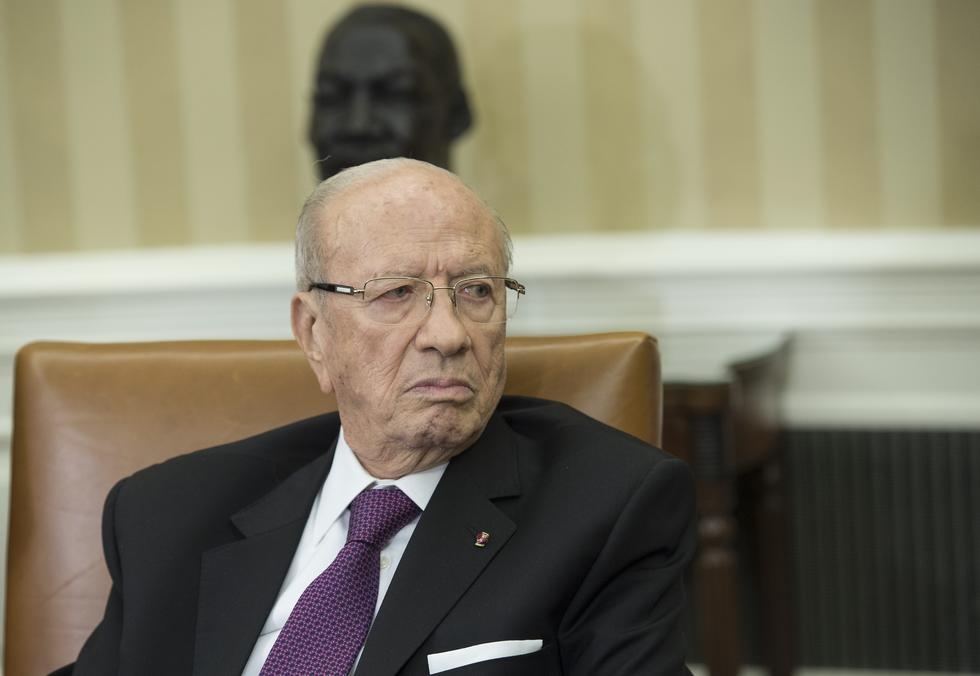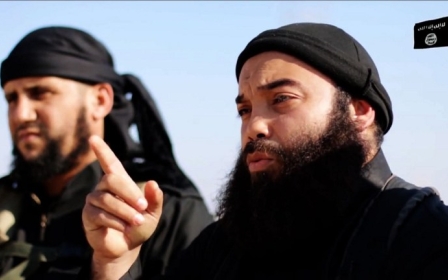Tunisia's president warns of state collapse if another attack takes place

TUNIS - Early on Saturday afternoon, Tunisia’s President Beji Caid Essebsi declared a state of emergency. His declaration comes a week after Seifeddine Rezgui gunned down 38 tourists at a hotel and beach in Sousse.
In a pre-recorded speech at 5:35pm (1635 GMT), Essebsi laid out his reasons for declaring the state of emergency and his government’s plan of action. He spoke about labour strikes and the flight of foreign investment out from Tunisia.
Many Tunisians relate these issues to indirect causes of radicalisation, as a lack of mainstream opportunities has been thought to lead certain young people into more obscure and militant paths. Essebsi blamed previous governments for these problems and said that although the current administration has attempted to fix the issue, terrorism has now become the most important problem to address.
He said he expected the Bardo attack to be the last attack, but added that the occurrence of the recent Sousse beach massacre changed everything. He called it a “war situation,” which Tunisia now faces against terrorism.
He also noted that if an event similar to the Sousse attack happens again “the country of Tunisia will end”. He also spoke about the values of the revolution and said that Tunisia will remain free, but that the people also need to take responsibility to work against terrorism.
This state of emergency is the first declared since the 2011 uprising against former Tunisian president Zine El-Abedine Ben Ali. That state of emergency was lifted in March 2014.
Chapter 4, Article 80 of the Tunisian Constitution states that “In the event of imminent danger threatening the nation’s institutions and the security and independence of the country in such a manner as to prevent the normal operation of the institutions of the State,” the President has the right to declare a state of emergency, according to an official translation of the constitution by the Jasmine Foundation.
The initial declaration of the state of emergency lasts for 30 days and can be reinstituted by the Constitutional Court for a longer period of time, if deemed necessary. The state of emergency is meant to end as soon of the reasons for its declaration cease to be pertinent.
Seifeddine Ferjani, a researcher at the Round Table Studies, who is also close to the Islamist Ennahda Party, said that the declaration has taken a lot of people by surprise. He does not believe it is a “political move or power grab” but instead said the declaration is “due to the urgent security situation in Tunisia right now”.
Ferjani said the state of emergency has been announced because of the “genuine danger” of further terrorist attacks.
Many Tunisians and Britons have strongly criticised the security apparatus’ slow response time to the attacks, in addition to its inability to take preventive measures against militants, even though the Bardo Museum attack happened only in March.
After days of not appointing blame for the Sousse attack, Prime Minister Essid admitted in an interview with BBC that the police “time of reaction…is the problem”.
According to one US State Department security official working at the American Embassy in Tunis, who spoke to Middle East Eye on condition of anonymity, the delay was likely caused by a bureaucratic hierarchy.
They said the police knew about the attack soon after it started, but were delayed because of the need to verify with superior after superior in the police chain.
Ferjani said that there is constant momentum and tension for reforms in the country’s security sector, but that the public only discovers this momentum and tension when a terrorist attack occurs.
The state of emergency declaration came a day prior to the 18th day of Ramadan, which will be on Sunday. The 18th is significant, as it marks the anniversary of the Battle of Badr, the historical battle from the Quran.
Militants associated with IS and other religiously motivated groups interpret the 18th as significant for attacks against kufar or non-believers. On the 18th Ramadan day in 2014, approximately 50 fighters from the Oqba Ibn Nafaa brigade, using RPGs and machine guns, attacked Tunisian soldiers as they broke the fast at sunset. The attack claimed the lives of 15 soldiers and wounded another 20, making it the worst attack against the Tunisian military since French military forces left in 1963.
In light of the recent attack in Sousse, security officials picked up chatter from militants, describing their target list. Potential sites for attacks include “alcohol stores, bars, the country’s main airport, the tourist resort island of Djerba and the security forces,” according to The Independent. Additionally, earlier on Saturday, security forces attempted to capture one militant in Ben Guerdane, a city close to Tunisia’s border with Libya.
In the operation, security forces killed the militant, according to Tunisian security officials. It remains unclear whether this security push is at all linked to the recent worries about an impending further attack and the declaration of a state of emergency.
New MEE newsletter: Jerusalem Dispatch
Sign up to get the latest insights and analysis on Israel-Palestine, alongside Turkey Unpacked and other MEE newsletters
Middle East Eye delivers independent and unrivalled coverage and analysis of the Middle East, North Africa and beyond. To learn more about republishing this content and the associated fees, please fill out this form. More about MEE can be found here.




